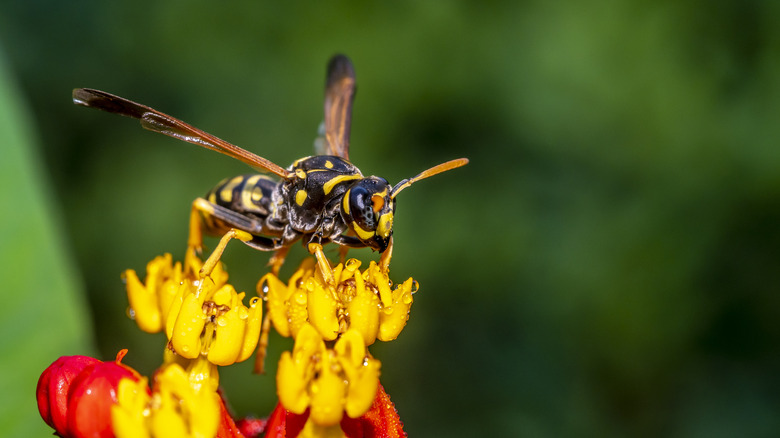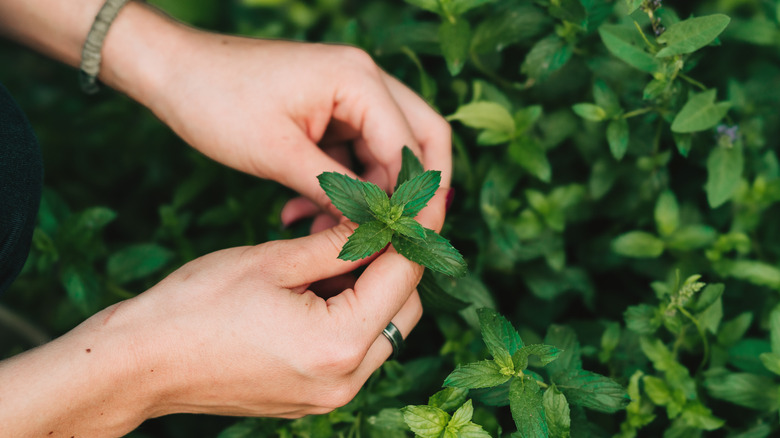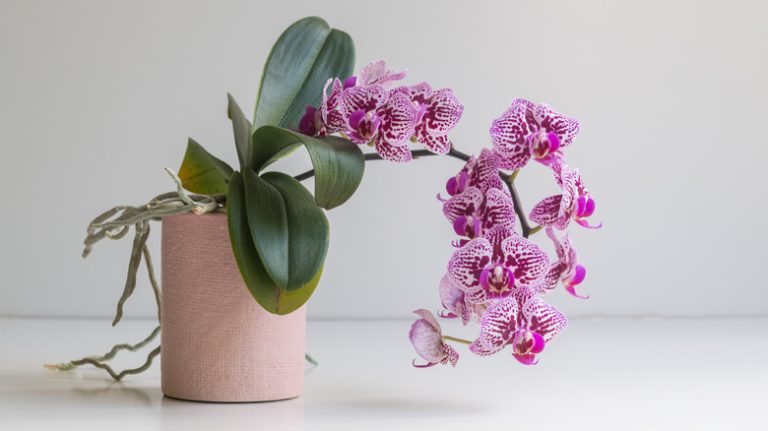The aromatic qualities of mint offer more than just culinary benefits; they serve as an effective way to repel insects from your outdoor spaces. Research backs up these claims. According to a 2024 study, oils derived from mint plants can act as a natural insecticide and repellent. The practicality of using mint as a repellent extends beyond its efficacy. This herb is a hardy perennial, which means it will return year after year, offering a long-term solution to your pest problem. Furthermore, its resilience in different climates makes it a universal choice for gardeners, whether you’re in a temperate or a more tropical setting. You’ll also appreciate mint’s dual functionality in your garden. While it works to keep yellow jackets and wasps at bay, it can simultaneously enrich your cooking.
Ease of care is another point in mint’s favor. We’re talking about a plant that’s far from fussy. It’s adaptable to various soil types and doesn’t require a strict watering schedule. This ease of maintenance makes it a fitting choice for novice and experienced gardeners alike. Moreover, its robust growth often eliminates the need for chemical fertilizers and pesticides, aligning well with sustainable and eco-friendly gardening practices. Lastly, consider the cost-effectiveness of this approach. Unlike commercial insecticides or professional extermination services, a mint plant or its essential oil is a cost-efficient method for keeping your yard free from these stinging pests. In essence, mint is a multifunctional herb that addresses various needs while effectively repelling these wasps from your garden.
Why get rid of yellowjackets?

Before diving into the mint solution, let’s understand why yellowjackets are a problem in the first place. Identifiable by their striped bodies with yellow and black colors, these wasps live in colonies, often establishing their nests underground or in other concealed locations. While they play a role in controlling other garden pests by eating them, their presence becomes problematic when they build nests near human activity. Furthermore, yellowjackets are notorious for causing structural damage. They often chew through wood and other materials to build their nests, which can compromise the integrity of your surrounding structures.
To make matters worse, yellowjackets can be extremely aggressive, especially if they perceive a threat to their nest. Their stings can be painful and, in some cases, potentially fatal to those allergic to their venom. Given these threats, keeping yellowjackets at a distance is not just a matter of comfort but also of safety and structural well-being. Luckily, mint offers some hope here. As mentioned, its aroma disorients stinging insects like yellowjackets and wasps, making them less likely to establish their nests in your garden.
How to use mint to deter yellowjackets

When using mint as a repellent for yellowjackets, you have several options. The first and most straightforward approach is to plant mint in your garden. Before you start, it’s important to consider your garden layout. Start by planting mint near areas where you’ve noticed high yellowjacket activity, such as near patios or picnic tables. Since mint tends to grow horizontally and can become invasive, you might opt for root barriers to contain its spread. Potted mint plants are also a viable option if you have limited space or prefer a portable solution.
Planting mint is one thing, but maintenance is another. Regular pruning not only keeps the plant healthy but also stimulates the release of oils that make the mint aroma more potent. And remember, healthier plants produce stronger scents, which, in turn, act as a more effective deterrent. A well-tended mint plant is an optimized mint plant. If you’re looking for a quick solution, you can create a homemade mint spray using peppermint essential oil. Mix peppermint oil with some dish soap and warm water. Put this concoction in a spray bottle, and you have a powerful, natural repellent. Check the area for nests and spray if needed. Note that it’s best to do this either early in the morning or late in the evening — when these insects are less active. Reapply the spray every few days until you notice the yellowjackets have abandoned the nest.



